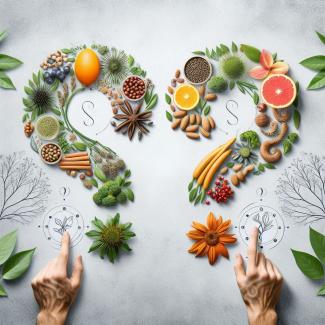
Many plants and herbs are believed to have immune-boosting properties due to their rich content of vitamins, antioxidants, and other compounds that support the immune system. Some of these plants and herbs include:
- Echinacea: Echinacea is a popular herb that has been traditionally used to support the immune system. It is available in various forms, including teas, capsules, and extracts.
- Astragalus: Astragalus is an herb used in traditional Chinese medicine to support the immune system. It contains compounds that may enhance immune function.
- Garlic: Garlic has been studied for its potential immune-boosting properties. It is known for its antimicrobial and anti-inflammatory effects.
- Ginger: Ginger is a spice with anti-inflammatory and antioxidant properties. It can help support the immune system and has been used traditionally for this purpose.
- Turmeric: Curcumin, the active compound in turmeric, has anti-inflammatory and antioxidant properties. It may help support the immune system.
- Oregano: Oregano is rich in antioxidants and has antimicrobial properties. Oregano oil, in particular, is thought to have immune-boosting benefits.
- Green Tea: Green tea is packed with antioxidants called catechins, which can help support the immune system.
- Berries: Berries like strawberries, blueberries, and blackberries are high in vitamins, especially vitamin C, which is known for its immune-boosting properties.
- Citrus Fruits: Citrus fruits like oranges, lemons, and grapefruits are rich in vitamin C, which is essential for a healthy immune system.
- Mushrooms: Certain mushrooms, such as shiitake and maitake, contain compounds that may enhance immune function. They are often used in traditional medicine.
- Probiotics: While not plants, probiotics are beneficial bacteria found in fermented foods like yogurt and kefir. They can help maintain a healthy gut, which plays a crucial role in overall immune health.
- Ashwagandha: An adaptogenic herb, ashwagandha is believed to help the body adapt to stress and support the immune system.
It's essential to remember that a balanced diet rich in a variety of fruits, vegetables, and whole foods is the foundation for a healthy immune system. While these plants and herbs may offer immune-boosting benefits, they should not replace a well-rounded diet and a healthy lifestyle, which includes regular exercise, adequate sleep, and stress management. Additionally, if you have specific health concerns or conditions, it's a good idea to consult with a healthcare professional before adding new supplements or herbs to your diet.






